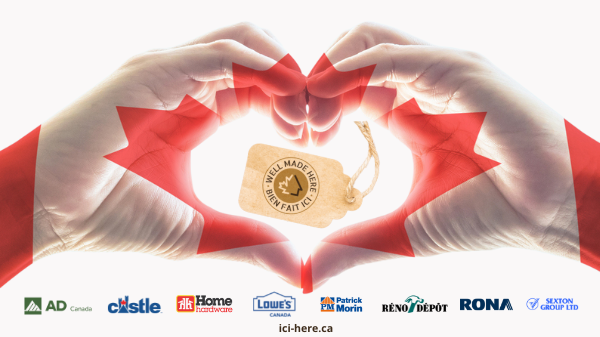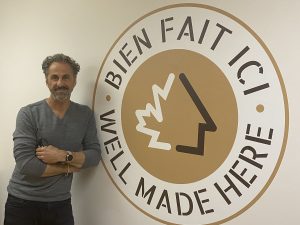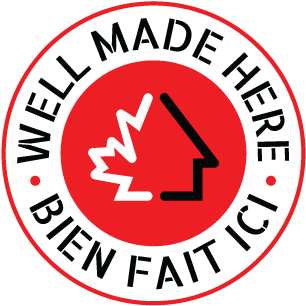Celebrating our country and its citizens should also mean buying more Canadian products for our homes

Ottawa, July 1, 2022
Open Letter to the Prime Ministers of Canada, the Provinces and the Territories on this Canada Day
As the climate warms – and I’m not just talking about the weather – and conflicts increase deep in the world and close by with our neighbours, the United States, it is useful to take a moment to celebrate Canada, and the relative peace it brings us. Far from being perfect, our country is still faring better than pretty well anywhere else.
While celebrating, I invite all to reflect on our behaviour as consumers: when we go to the hardware store, shouldn’t we, as we do more and more at the grocery store, worry about the origin of what we buy for our homes? And by extrapolation, shouldn’t you, as decision-makers, while respecting free trade agreements, favour by all possible means the supply of materials made in Canada for public works?
There are many reasons to encourage our hardware and building material manufacturers. I will limit myself to sharing five with you.
1. Solidifying the backbone of any economy: manufacturing activity. Even in the 21st century and in this era that is more virtual than ever, local manufacturing of industrial products ensures that any country avoids being at the mercy of others. In addition, it promotes the marketing of items that are congruent with the Canadian climate, local rules and consumer preferences being taken into account. However, the manufacturing sector has fallen below 10% of Canada’s Gross Domestic Product (GDP) where it represented 24% of our economy in 1965. Each of us has a responsibility in the face of this threat which weakens us all.
2. Encourage research and innovation. The decision for an SME or a multinational to produce here rather than in a third country underlies upstream intellectual properties, which patents protect our creators and form a guarantee against the loss of head offices and the migration of decisions that entails.
3. Stimulate shorter supply chains. Entrenching your manufacturing activity on a regional subcontracting cluster can make all the difference when a war or conflict breaks out, when the price and availability of international transport blow up, when an ecological disaster strikes or when the next pandemic arrives. The few extra cents or dollars paid per product because of the quality of the conditions we offer our workers here will be more than offset when an international supply chain breaks.
4. Help fight greenhouse gas emissions. Buildings are responsible for 17% of GHGs in Canada, largely (40%) caused by the use of fossil fuels to heat and cool our buildings. But painting a true picture of the enormous contribution of our homes to global warming and the resulting loss of biodiversity requires adding the costs of manufacturing and transporting exported products used in residential renovation and construction. And since we need to reduce GHGs, let’s make the decision to favour hardware items and residential materials with two attributes: decent traceability and technical properties that reduce energy losses.
5. Make public finances more robust. In ten years, Canada’s debt has approximately doubled, sadly escalating Canada into the top tier of countries with the highest debt per capita. One of the surest ways to reduce the burden of debt relative to the size of our economy is to buy local for our homes. A hardware item made in China or a building material imported from Texas benefits an exporter while a product made in a facility here generates tenfold the income for Canada thanks to the income taxes paid by the workers, the various taxes paid by the employer, not to mention the impact one manufacturing site and its dozens or hundreds of workers have on the municipal economy, and often on dozens of subcontractors in the region.
Buying more “Well Made Here” accredited products is an effective way to address all of these issues facing citizens, governments and our planet.
Richard Darveau

President and Chief Executive Officer
“Well Made Here” organization
